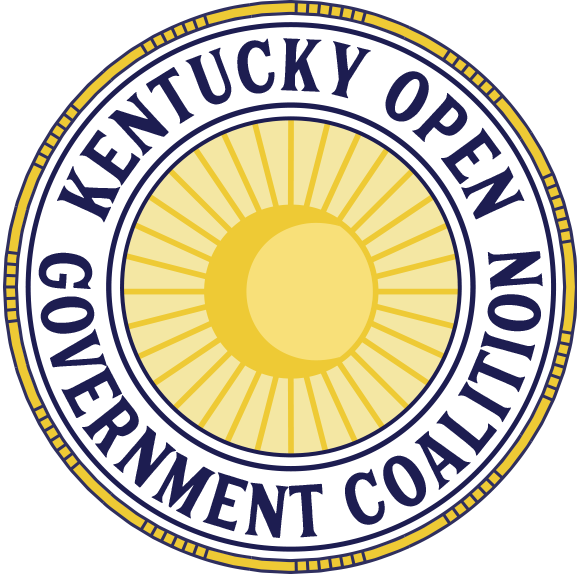
Kentucky Kernel Special Projects Editor Casey Sebastiano reports that the University of Kentucky has released public records — requested by the newspaper — in compliance with a Fayette Circuit Court order. The records relate to an alleged September 2024 rape in Chellgren Hall. Specifically, “The Kernel requested records of non-UK student Chellgren Hall guests on Sept. 20, 2024, from midnight until 8 p.m., and of any occasion where [the suspected assailant, against whom the case was later dismissed,] signed into a residence hall in the 2024-2025 academic year.”
https://kykernel.com/108714/showcase/kernel-sues-uk-over-withheld-recor…
https://kykernel.com/115633/news/uk-provides-kernel-with-requested-docu…
https://kentuckylantern.com/briefs/university-of-kentucky-provides-stud…
UK ignored the competing public interest in determining if residence hall admission practice mirrored university residence hall admission policy in denying The Kernel’s request on the basis of the personal privacy of the residents and their visitors.
The university argued that disclosure of the records would be “considered an invasion of personal privacy.” However, Kentucky open records law requires the agency to establish that the asserted invasion of personal privacy is a “clearly unwarranted” invasion, and not just an invasion in the eyes of the person asserting the right of privacy. This is done by weighing the competing public interest in disclosure against the private interest in nondisclosure. If the interests are equally weighted, the balance tips in favor of disclosure. Otherwise, the weightier interest —public or private — decides the dispute in favor of or against disclosure.
On April 17, the Fayette Circuit Court ruled in favor of The Kernel. After the university masked the names of all residents and visitors except the individual identified in its request, the newspaper received the redacted records on May 5.
https://kykernel.com/115633/news/uk-provides-kernel-with-requested-docu…
Representing The Kernel in the open records challenge initiated in November 2024, media lawyer Michael Abate observed, “We don’t understand why the university fought so hard to keep this information from the public, but we do think that it raises some questions as to whether the visitor policy in the dorms is being consistently and strictly enforced.”
The Kentucky Open Government Coalition has also questioned the university’s motives and its obstinance in advancing shaky legal arguments to shield the requested records from disclosure.
https://kyopengov.org/blog/kernel-returns-court-vindicate-publics-right…
Whether it hoped the passage of time would dissipate public interest; whether it hoped to exhaust The Kernel’s resources and commitment through obfuscation, delay, and a protracted legal battle; or whether it hoped to continue to prioritize institutional “branding” over its obligation to strictly adhere to state open records law — or, more importantly, to ensure the safety of the campus and those who reside there — the university lost in the first round.
Within a few weeks of the entry of the circuit court’s order, UK elected to forego an appeal to the Court of Appeals, accepted the judgment of the court and agreed to pay The Kernel’s well-deserved attorneys fees, and released the disputed records — all in approximately six months of its original denial of The Kernel’s request rather than its six year open records battle with The Kernel that ended in a humiliating university defeat.
https://casetext.com/case/univ-of-ky-v-kernel-press-inc
The University of Kentucky’s greatest miscalculation may have been in underestimating The Kernel’s resolve. Early in the controversy, a representative of the newspaper, Editor-in-Chief Abbey Cutrer, declared:
“Our first obligation as journalists is to the truth and our loyalty is to the people. The students have a right to know if protocols are being followed in dorms."
Unlike the University of Kentucky’s administrators, these young journalists understood that “The warrant for disclosure must be a public purpose. The Act was intended to make transparent the operations of the state's agencies. ‘The public's “right to know” under the Open Records Act is premised upon the public's right to expect its agencies properly to execute their statutory functions. In general, inspection of records may reveal whether the public servants are indeed serving the public, and the policy of disclosure provides impetus for an agency steadfastly to pursue the public good.’”
https://caselaw.findlaw.com/court/ky-supreme-court/1653243.html
https://law.justia.com/cases/kentucky/supreme-court/1992/90-sc-498-dg-1…
One of the greatest university “goods” is to safeguard the welfare of the students with whom it has been entrusted. Here, the weighing of competing public/private interests tipped in favor of disclosure from the start. Six years, even six months, was far too long to wait “to make transparent the operations of the [the University of Kentucky].”
